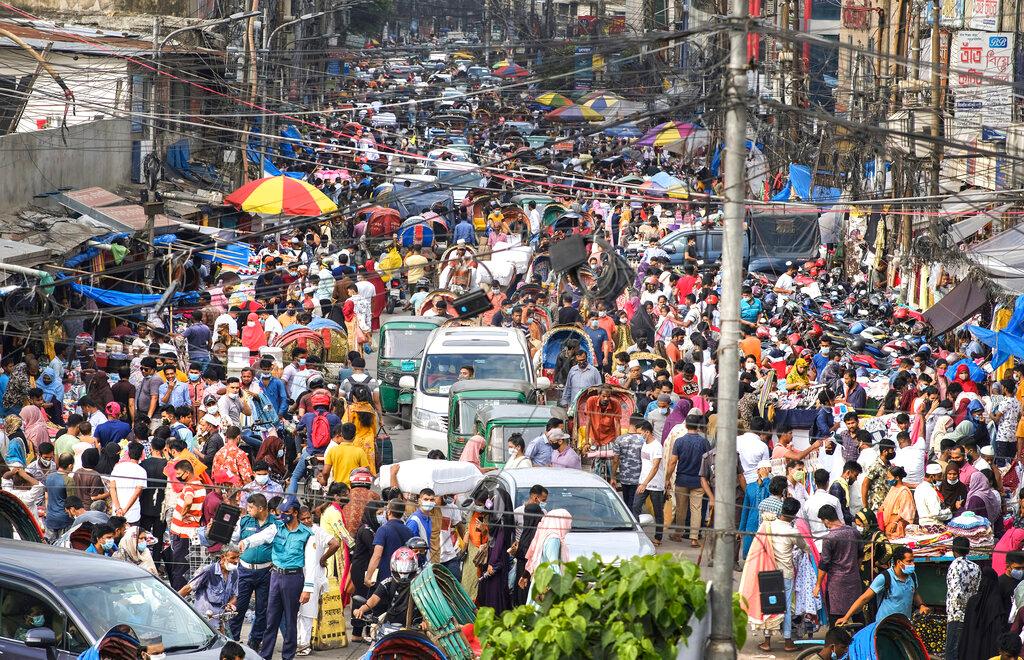Bangladesh lifts lockdown to celebrate Eid, alarming experts
Half of Dhaka's 20 million inhabitants could head back to their villages, taking Covid-19 with them, say experts.
This week the Bangladesh government is permitting a controversial eight-day pause in the country’s strict coronavirus lockdown so that millions of Bangladeshis can celebrate the Islamic festival Eid al-Adha, the festival of sacrifice.
The suspension has been condemned by health experts who are warning it could cause a catastrophic surge in infections of the highly contagious Delta variant, which has brought neighbour India so low.
“Already there is a scarcity of beds, ICUs, while our health care providers are exhausted,” said Be-Nazir Ahmed, a public health expert and former chief of the government’s Health Directorate. “So if the situation worsens and more patients come to hospitals, it will be near impossible to deal with the crisis.”
On July 1, with the spread of the virus rampant, most everything in Bangladesh was ordered shut, from markets to public transport. Soldiers patrolled the streets and thousands were arrested and jailed for violating the lockdown.
Yet even with the new restrictions, virus deaths still averaged about 200 each day and daily infections were still around 11,000, both thought to be undercounts. On Sunday, 225 deaths and 11,758 infections were reported.
With just slightly more than four million of the country’s 160 million people fully vaccinated, and despite dire warnings from experts, the government announced that from Jul 15 to 23, all restrictions would be lifted and everything would be reopened so people could celebrate the festival.
“But, in all situations people must stay alert, use face masks and strictly follow health instructions,” a government policy statement said.
A junior minister from the Ministry of Public Administration told local media on Saturday that the lockdown had to be eased as a lot of business revolves around the festival.
The result in the capital Dhaka has been crowds of people jamming into malls and markets to do their holiday shopping and others jamming bus stations as they try to make their way to their rural hometowns.
During the last major Islamic festival in May, Eid al-Fitr, an estimated 10 million of Dhaka’s 20 million residents left to celebrate with their families. A similar number could travel this week, especially since many may be looking to wait out the next lockdown in their villages.
Health experts are warning that the main risks of suspending the lockdown are people from the city spreading the virus to their villages and people spreading the virus while they pack into markets for their shopping, especially cattle markets where millions of people will buy animals to sacrifice for the festival.
According to expert estimates, 30 million to 40 million people will gather for prayers in mosques and open fields across the country for the festival on Wednesday, making the Eid congregations superspreader events.
Mohammad Shahidullah, who heads a health committee that advises the government on how to manage the pandemic, said his group of experts opposed the easing of the lockdown.
“The committee opines that this strict lockdown should be continued till there is a declining trend in infections,” Shahidullah told reporters.
“There is an increasing trend of infections and fatalities. The infection level is still far too high.”
The month after the festival will be a critical time for a country that has already tallied over a million infections and nearly 18,000 deaths from the pandemic.
Subscribe to our newsletter
To be updated with all the latest news and analyses daily.
